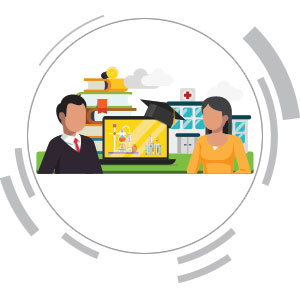
How can Indonesia improve the quality of its human capital? What policies and programs are needed to address the skills gaps, improve the quality and relevance of education, and increase access to social security?
Despite relatively stable economic growth in recent years, the benefits have not been enjoyed by all Indonesians. There are significant gaps in access to quality public services, including health, education, basic infrastructure, clean water and sanitation, particularly outside Java. Poor health and low-quality education impacts on the quality and productivity of Indonesia’s workforce.
Improving the quality of human capital is a key focus of the current government’s Nawa Cita (Nine Goals). Programs such asIndonesia Pintar (Smart Indonesia), the roll out of the universal health insurance scheme, and other forms of social assistance aim to improve Indonesians’ education and welfare throughout their lives. Increasing productivity and competitiveness is also an important focus; however, disparities in education, health and welfare persist and many workers, particularly in the informal sector, remain vulnerable. Addressing these gaps is a pre-requisite for other gains in productivity.
This sub-theme aims to explore:
- Policies and programs to address the gaps in skills and education, increase completion of higher levels of education, and improve the quality and relevance of education;
- Increasing investment in health and education services in urban areas, where workers are concentrated;
- Increasing access to health and education services in rural areas, to strengthen human capital and drive local economic development;
- Strategies for increasing access to and participation in social security schemes, including BPJS Kesehatan and BPJS Ketenagakerjaan.

